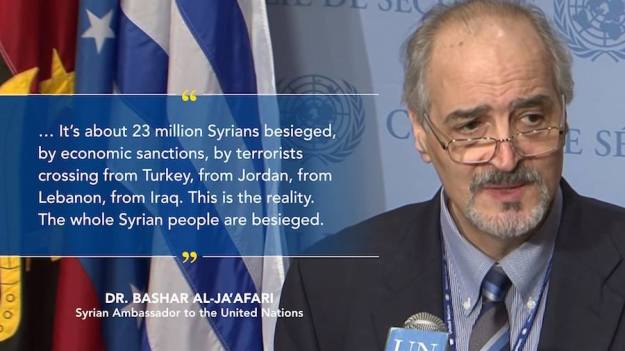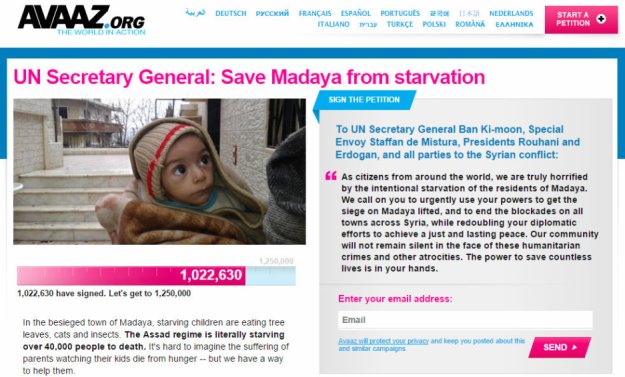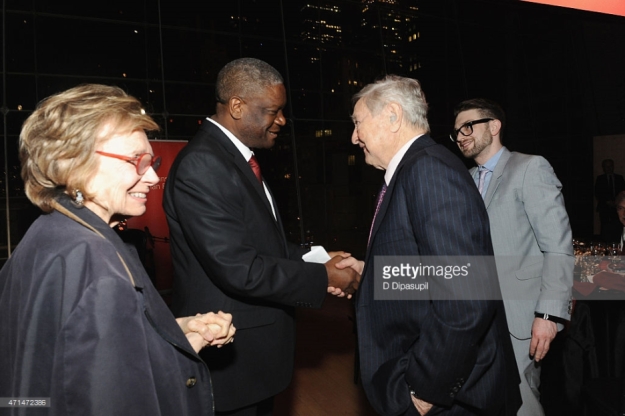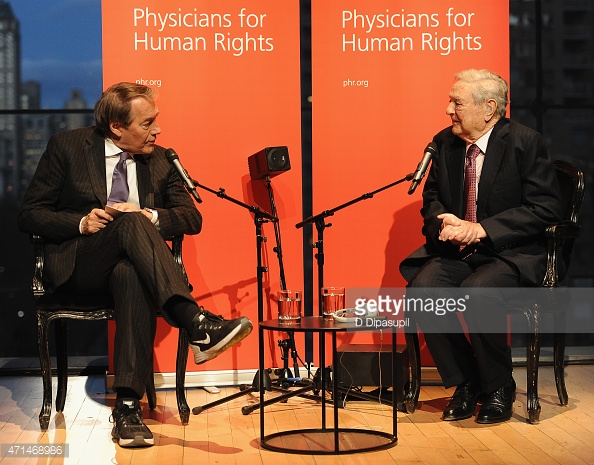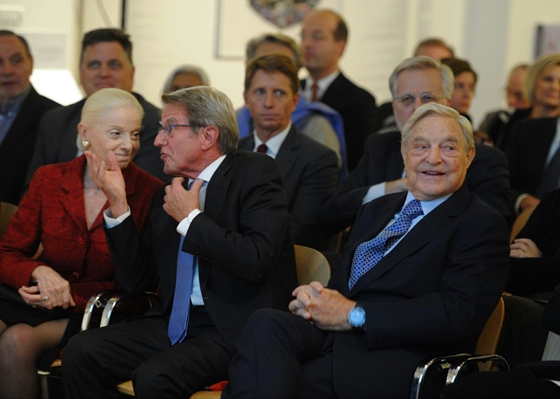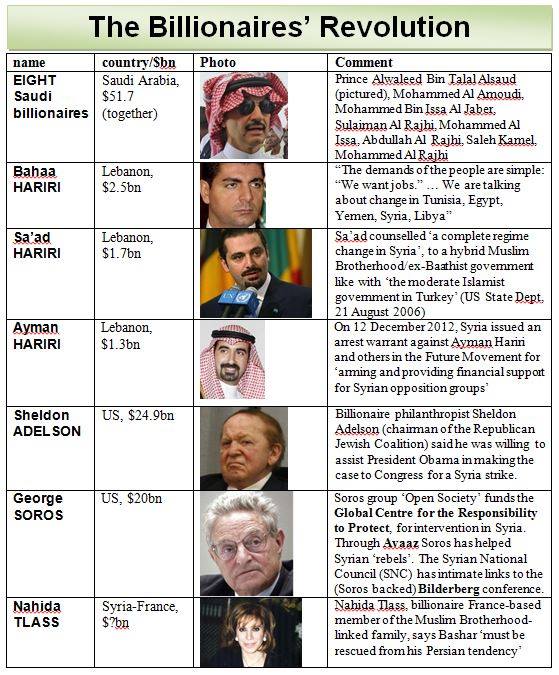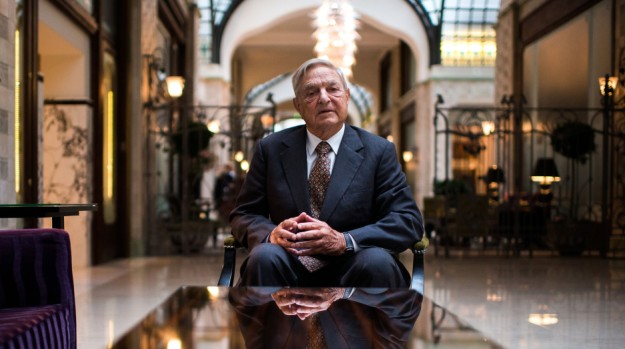Feb 01
20160
Amnesty International, Avaaz, Foundations, Human Rights Watch, Humanitarian Agencies, Imperialist Wars/Occupations, Non-Profit Industrial Complex, Whiteness & Aversive Racism
African Youth Initiative Network AI Avaaz Burundi Global Alliance for Improved Nutrition (GAIN) HRW International Criminal Tribunal for Rwanda (ICTR) Mara Group and Mara Foundation Mo Ibrahim Foundation Nigeria’s National Human Rights Commission R2P Samantha Power UN High Commissioner for Human Rights
EMPIRE TARGETS BURUNDI: “Humanitarian” NGOs Escalate Momentum in Beating the Drums of War
Wrong Kind of Green
February 1, 2016
As Empire targets Burundi, force multipliers at the helm of the non-profit industrial complex such as Avaaz, Amnesty International and Human Rights Watch beat the drums of war. NGOs, perhaps now the most instrumental tools in the West’s war chest, are financed by (and in many cases created by) the world’s most powerful oligarchs and institutions. The latest signatories demanding “humanitarian intervention” in the sovereign country of Burundi, come in the form of an open letter (article follows) signed by: Dr Mohamed (Mo) Ibrahim – Founder and Chair (Mo Ibrahim Foundation), Mr Jay Naidoo (Chair of the Board of Directors and Chair of the Partnership Council of the Global Alliance for Improved Nutrition), Mr Victor Ochen (Director, African Youth Initiative Network), Dr Chidi Odinkalu (Chairperson, Governing Council of Nigeria’s National Human Rights Commission), Judge Navi Pillay (UN High Commissioner for Human Rights from 2008-2014 and President of International Criminal Tribunal for Rwanda from 1996-2003) and Mr Ashish J. Thakkar (Founder, Mara Group and Mara Foundation).“The Cairo Institute for Human Rights Studies is a key NGO within the Network and it is also a member of the International Federation of Human Rights. It was founded in 1993 by Bahey El Din Hassan who was elected member of the Executive Committee of the Euro-Mediterranean Human Rights Network at its second meeting in 1997. In December 2011, he participated in a meeting of the Atlantic Council co-organised by the Rafik Hariri Center for the Middle East dealing with Egypt which is his country or origin. That meeting discussed the arrest of members of Amnesty International, Human Rights Watch and the National Endowment for Democracy who were accused of interference in Egyptian internal affairs.” — Centre for the Study of Interventionism
This is a rinse lather and repeat method as witnessed prior to the illegal war on Libya, based on manufactured lies by the West. [Further reading: Libya and the Big Lie: Using Human Rights Organizations to Launch Wars, September 24, 2011] [From Libyan sources: 500,000 dead, 30,000 in terrorist-run prisons, 2.5 million exiled, tens of thousands of refugees]
As the tiny East African nation of Burundi and its president Pierre Nkurunziza refuse to bow down to foreign interests, despite the increasing pressure, Empire accelerates all destabilization tactics. Evidence of manufactured atrocities strategically disseminated by Empire’s force multipliers in order to flood both the infosphere and human psyche – is not required.
This interview (January 23, 2016, screenshots above) demonstrates how media (as another force multiplier) kowtows to imperialism. Note the body language of Burundian president Pierre Nkurunziza in reaction to U.S. ambassador Samantha Power’s patronizing language under the guise of white superiority. Power states: “there is a cri de coeur from many, many people in Burundi for outside help and for urgent, urgent mediation…” It is at this point (3:10) Nkurunziza closes his eyes. (Imagine having to bear words choreographed to incite destabilization by Power, on behalf of the most violent, hypocritical and racist country in the world – to a media serving as an foreign policy echo chamber.) The media hones in on Power, hanging on her every word, as though the position by the Burundian Government, as represented by it’s president, is of secondary importance with little significance. In five minutes of coverage on Burundi, Nkurunziza’s comments amount to a total of approx. 9 seconds. In this way, the media demonstrates racism, bias and subservience to the West. Indeed the task at hand is to frame the crisis to better advance foreign interests. [“UN Security Council Meets with Burundi’s President Pierre Nkurunziza to Push for Peace Talks” | “The 15 council members were greeted on arrival Thursday by pro-government demonstrators telling them to stop meddling. Hundreds lined the road leading from the airport to greet the envoys with signs that read ‘genocide will not happen’ and ‘stop interfering in Burundian affairs'”. Source]
“No one more adamantly challenged the Western consensus than Pan Africanist scholar Dr. Randy Short, speaking to Press TV. Dr. Short said that the Burundian crisis is really all about the resources that Western powers are taking out of Burundi’s neighbor, the Democratic Republic of the Congo.
“Burundi is a conduit into Congo. Burundi is one of the poorest countries in the world. They don’t have anything. They (U.S. policy makers) care as much about Burundians as they do about the people in Baltimore who were rioting a few weeks ago. This is a sham. It’s a shibboleth… an effort to do is to steal from sovereign nations in Africa and to compete with the Chinese and the BRICs countries to hold onto Africa as a treasure house for the benefit of white Western powers.” — Challenging the Western consensus on Burundi June 5, 2015
Video: Pan-African Analysis of Burundi Destabilization with Dr Randy Short (Video published May 31, 2015):
May 17, 2015: The President of Burundi: Pierre Nkurunziza travels back home to Bujumbura (from Tanzania) on May 15, 2015, after failed coup attempt:
Excerpt from the article “Human Rights Want AU to intervene in Burundi, South Sudan Wrangles” (The Star, January 31, 2016):
Former US President Bill Clinton, Christine Lagarde IMF Managing Director, and Mo Ibrahim Founder and Chairman, Mo Ibrahim Foundation attend the Clinton Global Initiative (CGI) on September 24, 2013 in New York. AFP PHOTO/Mehdi Taamallah
“The group consisting of eminent Africa personalities including Mo Ibrahim Foundation founder Mo Ibrahim want the AU to address the issues of political violence in the continent.
“In South Sudan, which should be reaping the benefits of the August 2015 peace agreement and seeking accountability for past crimes, distrust and animosity is running high between former foes and the return to war is a possibility,” states the letter.
The group says violence has been spreading to previously unaffected parts of the country and nearly 200,000 civilians remain under UN protection in crowded camps and the threat of famine is looming.
The AU and its leaders, have the opportunity and a responsibility to respond to these crises, before they get any worse.
In December last year, the AU Peace and Security Council resolved to send an AU force into Burundi to prevent a further escalation of violence.
Similarly, in response to the peace deal in South Sudan, the AU Commission pledged to set up a hybrid court to prosecute those who had masterminded the civil war.
Unfortunately, neither of these decisions has yet been fulfilled and the contexts in both countries have worsened and Nkurunziza vowed to block entry of 5000 AU peace forces.”
+++
The “Open letter to AU Peace and Security Council Heads of State” can be found here.
Signatories:
- Dr Mohamed (Mo) Ibrahim – Founder and Chair, Mo Ibrahim Foundation
- Mr Jay Naidoo – Chair of the Board of Directors and Chair of the Partnership Council of the Global Alliance for Improved Nutrition (GAIN)
- Mr Victor Ochen – Director, African Youth Initiative Network
- Dr Chidi Odinkalu – Chairperson, Governing Council of Nigeria’s National Human Rights Commission
- Judge Navi Pillay – UN High Commissioner for Human Rights (2008-2014) Judge and President of International Criminal Tribunal for Rwanda (ICTR) (1996-2003)
- Mr Ashish J. Thakkar – Founder, Mara Group and Mara Foundation
Further reading on the Mo Ibrahim Foundation: The Imperialist NGOs Recolonizing Africa and the African Leaders Who Serve Them | Emasculation of the African with Awards, Grants and Prizes
The U.S. and EU Sponsoring are Terrorism in Burundi: Interview with political analyst Gearóid Ó Colmáin, May 25, 2015:
https://www.youtube.com/watch?v=Vxh6Oqi3lvE&feature=youtu.be&t=1m56s








 Aerial bombing campaigns make U.S. wars for regime change in Afghanistan, Iraq, Libya and Syria highly visible and absolutely undeniable, but the corporate and state press don’t describe U.S. sponsored wars in Africa as such if they talk about them at all. Millions of African people have nevertheless lost their lives or seen their lives destroyed in U.S. sponsored wars for regime change and natural resources in Africa.
Aerial bombing campaigns make U.S. wars for regime change in Afghanistan, Iraq, Libya and Syria highly visible and absolutely undeniable, but the corporate and state press don’t describe U.S. sponsored wars in Africa as such if they talk about them at all. Millions of African people have nevertheless lost their lives or seen their lives destroyed in U.S. sponsored wars for regime change and natural resources in Africa.




















